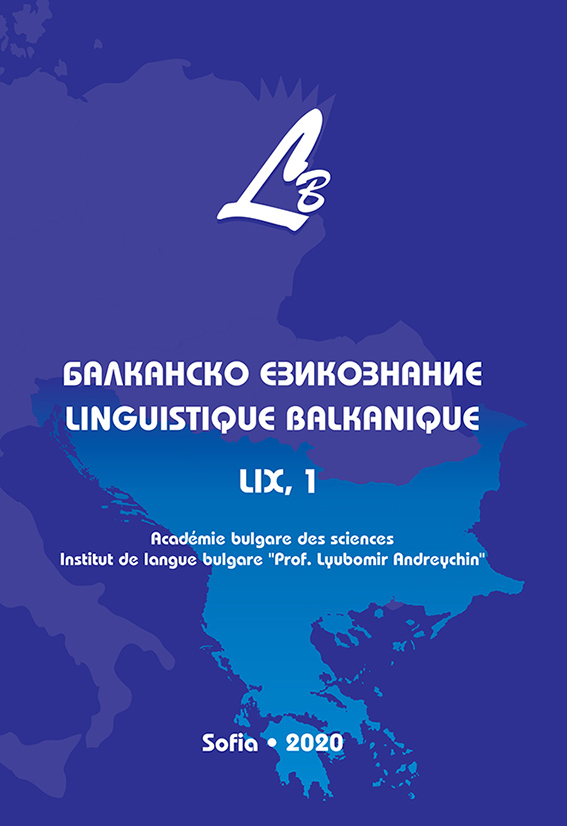Албанцы Украины и балканистика XXI в.: избранные обзоры
Albanians of Ukraine and Balkan Studies in the 21st Century: Selected Reviews
Author(s): M.L. Kisilier, Alexander A. NovikSubject(s): Language studies, Language and Literature Studies, Philology
Published by: Институт за български език „Проф. Любомир Андрейчин“, Българска академия на науките
Keywords: Albanian Studies; Albanians in Ukraine; field research; vocabulary; ethnonyms; anthropology
Summary/Abstract: At the present time, there are less than 5000 Albanians in the Ukraine and only half of them can speak their native language. For the most part, they live in four villages in the south of the country. The culture, history and dialect of Albanians in the Ukraine excited much interest in the 20th century. However, this interest has waned, and during the first two decades of the 21st century this subject is only still popular with specialists in Balkan studies, linguistics, ethnography, social and cultural anthropology, as well as some local amateur researchers. Several important studies on Albanians in the Ukraine have been published recently both by Ukrainian and Russian scholars. Some of them reveal data from the archives that were collected about seventy years ago, while others are based on the most recent field research.In our paper we attempt to analyze three monographs that appeared in 2014 and in 2017. Our goal is to attract more attention to these editions, and not to commend or criticize our colleagues. Using these publications, we reviewed relevant and some possibly problematic issues in Balkan Studies today. In our opinion, these issues could be expressed in three statements:a) it is impossible to get the relevant image of local ethnography, culture, inter-ethnic/inter-confessional relations if the linguistic data is not fully involved in the research;b) it is not possible to provide a relevant analysis of linguistic peculiarities of the local dialect since the issues of cultural code and local identity are not taken into account;c) the archives of our predecessors should not be regarded as museum heritage, but they should instead be modified and analyzed in the context of the most recent theories and technologies.We all face the problem of how to save our field research data from becoming museum objects, and how to make it useful and accessible to our colleagues and subsequent generations. Today, there are no readily available solutions, but we believe that language corpora supported by a strong network of various historical, ethnographical, anthropological, etc. commentaries could be a helpful way forward.
Journal: Балканско езикознание / Linguistique balkanique
- Issue Year: 59/2020
- Issue No: 1
- Page Range: 148-164
- Page Count: 17
- Language: Russian
- Content File-PDF

